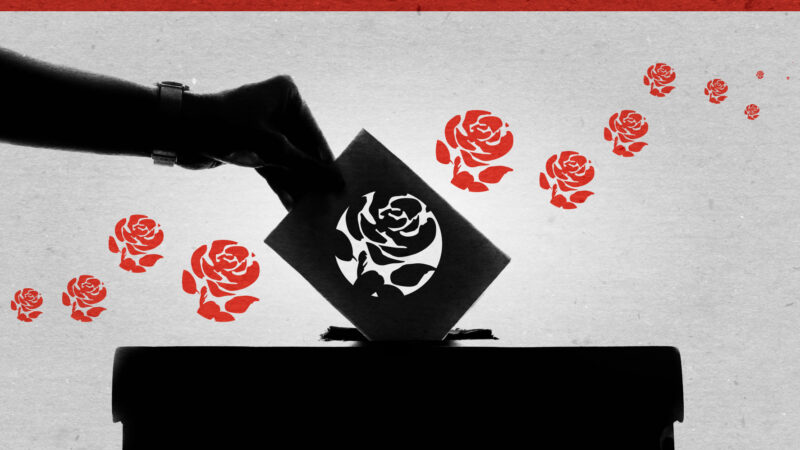
Labour’s policymaking process for the next election has come under fire from almost half the member representatives on Labour’s ruling body, with policy ideas no longer public, steering group meetings limited and representatives reportedly denied access to most policy work.
The National Policy Forum (NPF) is the party’s official mechanism for formulating policy, with multiple party stakeholders involved in shaping a programme that eventually feeds into manifesto-writing closer to election time. Anyone can currently submit ideas to the NPF, with the current consultation window ending next week.
‘No real transparency or accountability’
Ann Black, a Constituency Labour Party rep on Labour’s national executive committee (NEC), said she had expressed her concern at a recent NEC meeting that NPF representatives were reportedly unable to communicate with local parties, however.
Black, who topped last year’s NEC CLP rep ballot by a large margin, also sounded the alarm over the fact that there had only been one short online meeting of the joint policy committee – the group which steers the NPF – since the general election. There are also said to be no further dates set.
She contrasted the current NPF with the NPF of the past, when the joint policy committee met twice a year in person, with one over a weekend. The NPF also used to publish all of its submissions online, from 2012 until 2023, but has since ceased to do so.
“There was, I think, a commitment to bring policy commission reports to the full NEC again, but the NPF has to work to re-establish its relevance,” she said.
Black also criticised the fact that unlike in the past, NPF representatives can reportedly only see material relating to the specific policy area “commission” they are involved in – around one-sixth of the total policy programme.
A report about the same meeting by left CLP representatives echoed Black’s concerns. Jess Barnard, Gemma Bolton and Yasmine Dar claimed there is “no real democracy or accountability” in the process, given NPF reps were not able to report back on what other commissions were doing. They too suggested CLPs were not sufficiently able to contact NPF reps directly.
Labour tight-lipped to LabourList too
We asked Labour for comment on the above, but did not receive a response.
One source involved in the NPF told LabourList the communication issue had been caused by data protection laws, however – with NPF reps unable to get access to CLP secretaries’ email addresses from the Labour party.
Instead NPF reps’ only option has been to build their own lists as a way of getting around the regulations, they suggested.
GDPR is a “grey area” for activists, they said, with GDPR legislation interpreted differently in different voluntary organisations.
“Ultimately party officers are not experts in GDPR, the legal team will have a view, as will the responsible GDPR officer, and the party rolls that process out.”
‘Harsh’ to criticise party, with challenges more likely ‘cockup than conspiracy’
While they accepted that the joint policy commission had only met once, the source said it was “harsh” to criticise the party for it.
“The real work of the NPF is done in the commissions, that is where policy is scrutinised and looked through.”
The NPF’s work this cycle has been channeled into six ‘commission areas’, each matching Labour’s five missions plus another on ‘Britain reconnected’. More detail on each was quietly published earlier this year.
And on criticisms of submissions no longer being published online, they said monitoring the submissions and comments had been resource intensive.
They added that the fact that there had been 400 submissions already showed the system wasn’t broken.
“I’m not a big believer in the sort of conspiracy thing, which I know sometimes drives some of the political points people make about the NPF, right? It’s a vehicle for members to engage. There is a system there for members to be able to engage.
“I think the challenges where they exist tend to be around interpretation of legal processes, and it’s definitely far more cock-up than conspiracy. Otherwise, if it was a conspiracy, why would you bother doing full member engagement anyway?”
Subscribe here to our daily newsletter roundup of all things Labour – and follow us on Bluesky, WhatsApp, Threads, X or Facebook.
- SHARE: If you have anything to share that we should be looking into or publishing about this story – or any other topic involving Labour– contact us (strictly anonymously if you wish) at [email protected].
- SUBSCRIBE: Sign up to LabourList’s morning email here for the best briefing on everything Labour, every weekday morning.
- DONATE: If you value our work, please chip in a few pounds a week and become one of our supporters, helping sustain and expand our coverage.
- PARTNER: If you or your organisation might be interested in partnering with us on sponsored events or projects, email [email protected].
- ADVERTISE: If your organisation would like to advertise or run sponsored pieces on LabourList‘s daily newsletter or website, contact our exclusive ad partners Total Politics at [email protected].




More from LabourList
‘What Batley and Spen taught me about standing up to divisive politics’
‘Security in the 21st century means more than just defence’
‘Better the devil you know’: what Gorton and Denton voters say about by-election